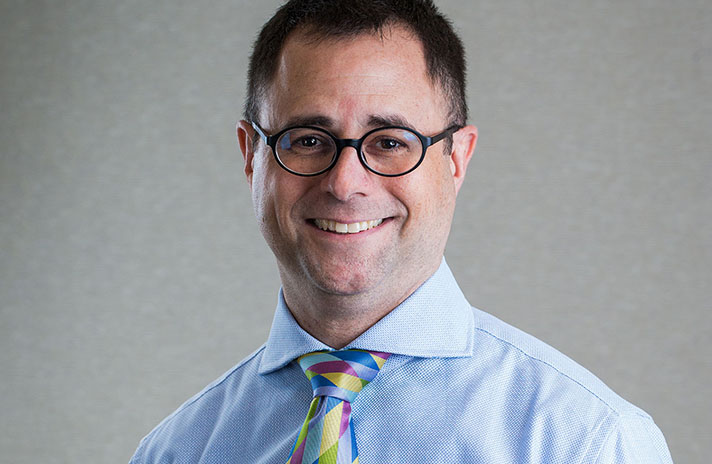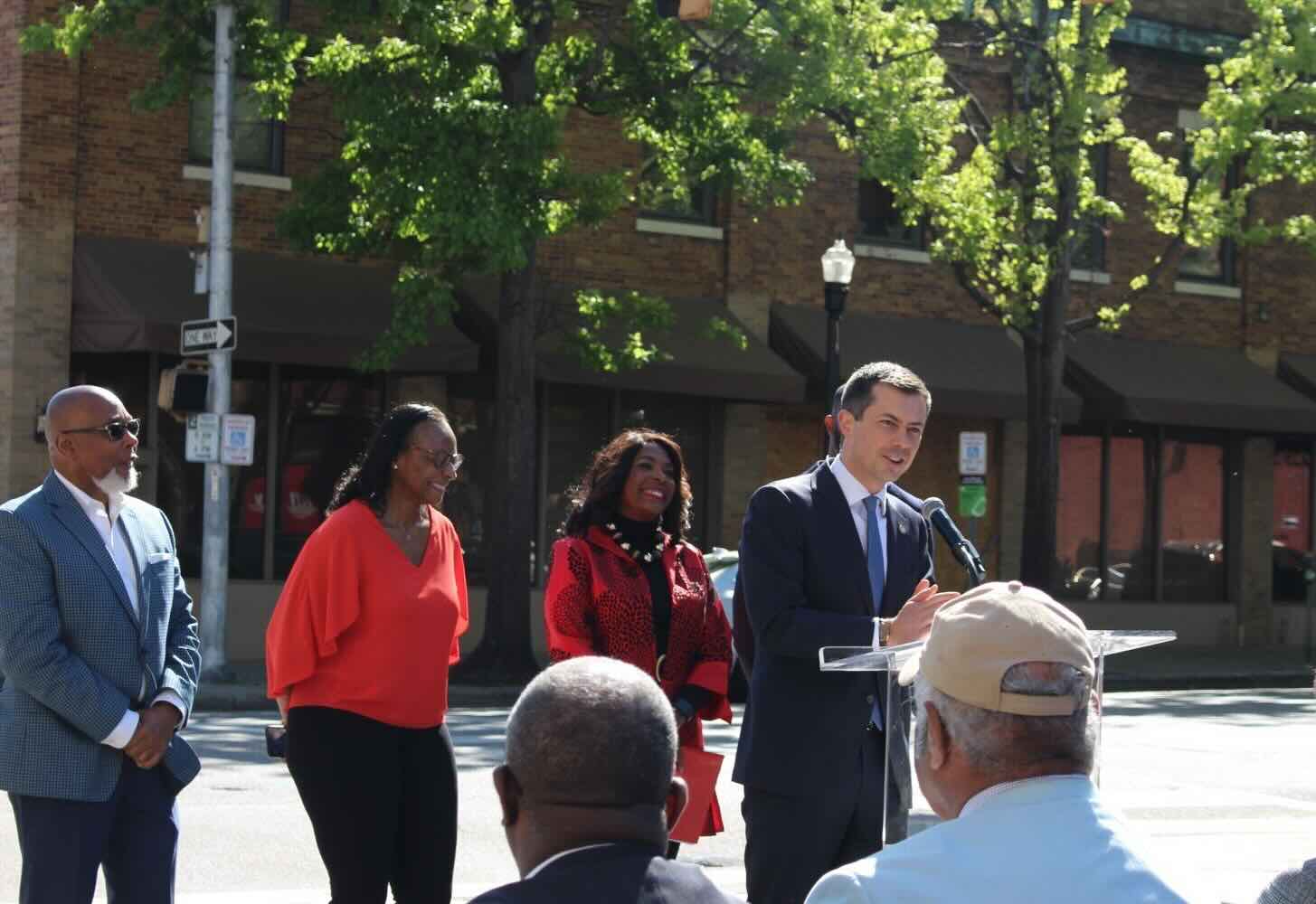ImpactAlpha, Jan. 24 – After 15 years as an analyst, trader, and portfolio manager at AllianceBernstein, Eric Glass was asked in 2015 to develop an impact investing strategy for the wealth manager’s municipal bond offerings.
Glass and his team raised and deployed more than $1.4 billion in the firm’s municipal impact strategy, which invested only in underserved and low-economic-status communities. Each investment was made with a specific intention – school bonds, for example, that aimed to close the achievement gap, or hospital bonds that sought to reduce the “death gap” between wealthy and poor zip codes.
Then came Alabama’s 2021 bond offering to finance public and private prisons. Glass participated in an ongoing campaign to undermine that offering, in part by noting that some of the investment banks involved had previously pledged to avoid underwriting private prison deals. Bond deals in the state had drawn criticism for helping perpetuate mass incarceration and systemic racism.
Glass left AllianceBernstein shortly thereafter. He now advises Justice Capital on investor and municipal engagement strategies to help align the voices of historically-excluded communities with financing approaches and participates in other advisory and non-profit board positions. He is preparing to launch a platform of fixed- income impact vehicles to address disparity in the built environment.
“You can’t do impact on a passive basis,” Glass told ImpactAlpha. “You need to engage.” Rich communities can access markets and optimize the lowest cost of capital, he says. Historically disinvested are often penalized in the financial markets.
“How can I partner with those communities to expedite and to speed up the change so that we reverse decades, if not centuries, of disinvestment?”
ImpactAlpha spoke with Glass about what’s required for an effective impact strategy, and how to adapt impact investing to the quirks of the municipal bond market. This interview has been lightly edited for clarity and length.
ImpactAlpha: Can a real, productive impact strategy be executed by a traditional asset manager?
Eric Glass: I would say it’s not impossible but it’s very, very hard. You have to have values alignment from the C-suite all the way down and that’s very difficult. If you think about the way asset management and capital markets are structured, those at the top are folks who all look the same. They’ve been doing the same thing over and over and over again for the last 20, 30, 50 years, they’re all fabulously wealthy, where is the incentive to change?
When you think about P&L statements within strategic business units and the dedication of resources around that, a traditional silo versus a new, unproven impact strategy, I think the traditional strategy wins every time. The asset management industry is so concerned about insulting or being off-putting to their current clients… if you become frightened to lose your current clients because of a stance you’re taking around incorporating new risk techniques, you don’t see what you potentially gain on the other side.
Over the next 20-30 years, there’s an anticipated $70 trillion transfer of wealth from generation 1 to their children (generation 1 being white men) to women and their children. Those women and children have explicitly said, we want to better align our values with the way we invest. That’s not even talking about institutions like foundations, endowments, pension funds. Everybody wants to have their cake and eat it too. For impact, I don’t think that’s possible. You have to make a decision about the way you want to go, what you want to be when you grow up.
ImpactAlpha: We ran a story about the institutional investor firm Adasina and the choices it faced in trying to implement a muni impact strategy. They weren’t sure if the best approach would be to simply buy bonds, or to try to engage directly with municipalities and be activist bondholders. Where do you come down on that?
Glass: That’s very sector-specific to munis. One of the interesting things about munis is that it’s a market dominated by (primary issuances). The new issue market dominates from week to week. As a portfolio manager you have some leverage, that’s the opportunity you have to engage with the bank and with the issuer around their ideas, why their capital plans include what they include, whether they are including historically underserved communities or not. After they have your money you don’t have a heck of a lot of leverage.
This is part of the change we’re trying to bring to the muni market, around ESG. How are you changing the dynamic and uplifting poor and historically disinvested communities, aligning and injecting ESG justice into your plans? That’s a very different inquiry than what’s been done in the market. One of the only ways you can do that is in the primary. You have a few days in which to ask questions. In some cases you get answers… sometimes you don’t… sometimes you get answers that are not very specific and not very thorough and thoughtful and you have to make a decision as an investor. That’s not to suggest you don’t have an opportunity in the secondary (market), but (it’s less likely.)
ImpactAlpha: The other thing that’s idiosyncratic to the muni market is the overwhelming level of demand compared to supply. You can ask the questions, but the issuer can also choose not to answer, and there will be plenty of buyers in line behind you who won’t care.
Glass: That’s right. They can tell you to go pound sand, and that’s happened many a time. As an impact investor, if you don’t address the questions I have – and it is an extensive list – but I expect a good faith effort to address them. If you decide that there are 20 funds behind me who are willing to give you money, that’s fine, I don’t provide you that order. That’s oversubscription you don’t get. Then by definition, you’re not getting the lowest cost of capital for your client. If you decide not to answer my questions, I decide not to order. That’s a million, ten million, twenty million, that you don’t get. You will not optimize your cost of capital. Try to explain that to your taxpayer.
ImpactAlpha: Does an impact strategy have to have an activist/advocate component?
Glass: Yes. It’s one thing to make an investment but it’s another thing to use the leverage you have as an investor to expedite the change that the community wants. That to me is the definition of being an impact investor.
The whole idea of investing in a community is to partner. I want to partner with you. I want to know what you want to accomplish and why you want to accomplish it, what changes are you implementing to be more equitable, how are you creating a more inclusive economy. It’s a symbiotic relationship and a partnership. I need to be an activist and an advocate for the change that this community is looking to bring about.
I have absolutely zero desire to invest in a wealthy community. They can access the markets, optimizing the lowest cost of capital. It’s other communities that have been historically disinvested that often are penalized in the financial markets because they are lower-socioeconomic communities. How can I partner with those communities to expedite and to speed up the change so that we reverse decades, if not centuries, of disinvestment? I’m a vessel for that change. It’s a very powerful dynamic. I hate this saying, but the hand that rocks the cradle is the hand that rules the world. That’s money.
ImpactAlpha: Why is this important work?
Glass: Not everyone is going to see this as important work.
The way in which capital is allocated is broken. The capital markets are broken, it has become wealth-building as opposed to community-building. This may be a bit Pollyanna, but when we allocate capital, we are trying to optimize results. Those results are in the form of returns, but also in the form of betterment of community. That’s the way I look at my job and the world and capital markets.
So what I know is that over the last 100 years or so there’s been a bastardization of the allocation of capital. It’s been about “me” as opposed to “us.” It’s been about the individual as opposed to community. I just choose to live my life and think about capital markets from a “we” perspective. That’s my calling.
I see communities devastated by environmental injustice and certain communities being ignored, and that’s human potential. If you go to school in a building that’s 80-100 years old… what does it say to a child that goes to school there? To someone who teaches there? It says you don’t matter. As an impact investor that’s abhorrent. And you need to change that.
We talk about health care and education and clean water and sanitation… that’s the muni market! I often say I want to put myself out of business. That means we’ve come to that moment, and at the foundation of our community infrastructure there is environmental and social justice.
ImpactAlpha: Can a retail investor just do it themselves, invest in underserved communities?
Glass: Yes, you could do that but it’s really hard for a retail investor to purchase municipal bonds on their own. The market is so idiosyncratic, there are 50,000 issuers, the structure of the bonds can be very different, the ability to research is very very difficult for mom and pop to do. Who has the time? It’s not like municipal analytics is splitting the atom but it’s time-consuming and hard to find the data. A lot of the information comes after the fact. The preliminary official statement is hard to find and often 500 pages long.
Also, I really truly believe you can’t do impact on a passive basis. You need to engage. I think that’s where the market is really focused on: how do we do this without getting our hands dirty? You have to get your hands dirty! You can’t do it on a passive basis. If you really want to do impact investing, if this is something that resonates with you, pick wisely.











